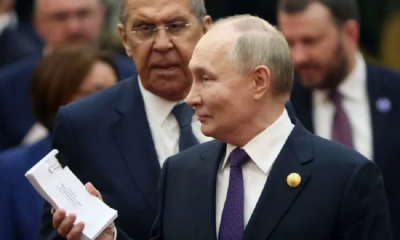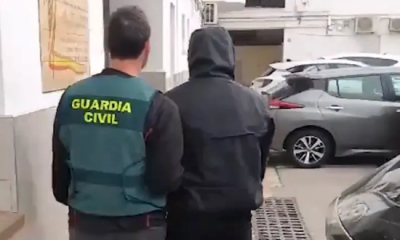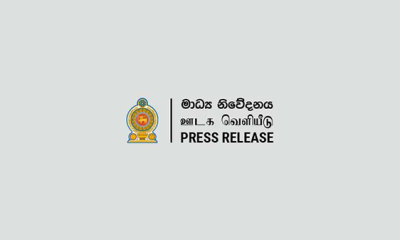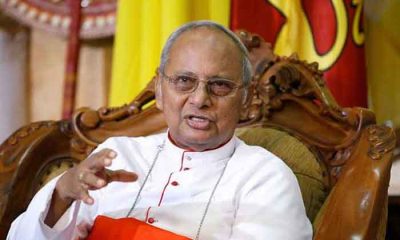Editorial
Some thoughts on Independence

When we saw an incoming email from a regular correspondent to the newspapers titled “Why not sing the National Anthem in the Thai language” in our inbox a couple of days ago, we naturally thought the writer had his tongue in his cheek. He was reacting to a news story in this paper last Sunday that the president had directed his Media Division to prepare the Independence Commemoration Souvenir in the Thai language in addition to Sinhala, Tamil and English to honour the visiting Thai premier. This was not actually the case. The letter writer was advocating a digital souvenir as an economy measure. He had incidentally suggested – seriously and not sarcastically – singing the anthem in Thai.
Be that as it may, given the country’s current travail with everything possible going wrong everywhere, many older people are heard to say “we might have been better off had we remained a British colony.” In that context it would be useful to reflect today, our 76th anniversary of Independence from British rule, some of the pros and cons of having been under the imperial yoke.
It would be foolish to regard the totality of British colonial rule over this island to have been of absolutely no benefit to us. Negatives undoubtedly abound, notably the notorious Waste Lands Ordinance No. 1 of 1897 declaring all uncultivated lands as state lands under this law. This resulted in the unjust deprivation of the country’s peasantry of commonly held grazing and forest land serving as rainwater catchments.
The sale for a song of such land to British investors to open first coffee and then tea plantations impoverished the Kandyan peasantry and deprived the whole country of the natural catchment of the forested hill country that fed our rivers, regulated the climate and much more. Then there was the brutal suppression of the Uva-Wellassa rebellion of 1817-18 and the scorched earth policy that followed and events that occurred in 1915 etc. There was also the administration of the country in a language most of its people did not understand and the ultimate horror of people being tried for their lives in such a language.
But on the plus side of the ledger was, as in India, uniting the whole country previously divided into several kingdoms, the legacy of the English language and the modernization of the economy with roads, railways, ports, hydro-power and urban infrastructure not forgetting the enforcement of law and order. Colonialism, as everywhere, was exploitative but not without at least some fringe benefits for colonized territories. This was more true of the British than the other colonial powers.
The period between 1931 and 1947 leading up to Independence when the country was governed by two State Councils under British overlordhip saw the opening of the dry zone which arguably was bigger than the Mahaweli Development project that came later. We had universal franchise in 1931 with women getting the right to vote only three years after females had won that right in the United Kingdom.
At the time of Independence, then Ceylon was a jewel in the crown of the British Empire and ours was arguably one of the strongest economies, other than Japan’s, in Asia. It is very well known that Singapore’s Lee Kuan Yew once held then Ceylon as a model for his country to emulate. That was then, but where are we now after 76 years of self-rule?
The blame for much of our failures must be squarely laid at the feet of the various post-Independence governments who have ruled us since we were freed of the colonial yoke. The Soulbury Constitution the British left us served us well for 26 years. But our political class with their lack of wisdom threw out the baby with the bathwater. The clause protecting minority rights ended with the 1972 constitution which accorded primacy to Buddhism, the religion of the majority. Sinhala Only was Mr. Bandaranaike’s battle cry but as Tarzie Vitachchi, one of our best known newspapermen so pungently put it, the prime minister later tried to add “but Tamil also” to that slogan!
As Prof. KM de Silva, one of our best known contemporary historians has noted, the 1972 constitution ought to have been a proper manifestation of the people’s sovereignty. But it was written with minimum public participation. As he pointed out, by promulgating the new constitution, the then ruling coalition elected by a landslide in 1970 gave itself a term up to 1977, two years beyond the five years to which it was elected in 1977.
But the J.R. Jayewardene government, elected in 1977 with an unprecedented five sixths parliamentary majority did better, doing away with the next election “with the consent of the people” obtained via what was widely regarded as a heavily rigged referendum. This enabled the then incumbent parliament to remain in office for a further term without an election. But as KM de Silva has said, the system we have been left with “may be described as a centralized democracy in which the most dominant element is the political executive which in comparison with the former constitution has fewer built-in checks on the abuse of political power.”
The various missteps since Independence led to a near 30-year civil war, a bankrupt country with an obscenely bloated public service and a military that is the world’s 14th largest. Jobs for the boys (and girls) of politicians has resulted in our public service being over five times as big as it needs be. Our youth is quitting the country in their thousands as they see no future here as we prepare for yet another election with little prospect of the widely desired system change.
Editorial
A welcome judgment

Thursday 3rd April, 2025
Justice finally caught up with former North Central Province Chief Minister S. M. Ranjith and his sister-in-law Shanthi Chandrasena yesterday, when the Colombo High Court (HC), which heard a case filed by the Commission to Investigate Allegations of Bribery or Corruption (CIABOC) against them in 2021, sentenced them to 16 years RI for having misappropriated Rs. 2.6 million between 2012 and 2014. They were also fined Rs. 200,000 each. The HC judgment must have gladdened the hearts of all those who long for an end to corruption.
The criminal misappropriation of state funds at issue happened during the heyday of the Rajapaksa rule, which became a metaphor for corruption and abuse of power. When politicians are intoxicated with power, they become blind to the consequences of their actions, and enrich themselves as if there were no tomorrow. They usually cover their tracks, but the January 2015 regime change may have prevented CM Ranjith and his sister-in-law, who was his private secretary, from doing so. Their offence, however, pales into insignificance in comparison to what some other members of previous governments have been accused of. Unfortunately, most of those allegations have gone uninvestigated, or escape routes have been opened for the accused in some high-profile corruption cases, which were made to collapse, much to the dismay of anti-corruption campaigners and the public. Thankfully, most of those characters failed to get re-elected last year, and this is something the NPP government can flaunt as an achievement.
Another former Chief Minister––Chamara Sampath Dassanayake––has been remanded for causing a huge loss to the Uva Provincial Council by withdrawing six fixed deposits prematurely in 2016. It is hoped that all allegations of corruption, abuse of power and serious crimes such as murder against the members of previous administrations will be probed thoroughly and the culprits prosecuted expeditiously.
Corruption usually thrives under powerful governments in this country because huge majorities tend to nurture impunity. Integrity of most Sri Lankan politicians is a mere result of the unavailability of opportunities to line their pockets rather than an unwavering commitment to moral principles. Power tends to have a corrosive effect on scruples, and many self-proclaimed champions of good governance, who come to power, vowing to rid the country of corruption, end up being as corrupt as their predecessors. What we witnessed following the 2015 government change is a case in point. The ‘paragons of virtue’ in the UNP-led Yahapalana camp committed the first Treasury bond scam a few weeks after being voted into power. The present-day leaders who are campaigning hard against corruption were on a political honeymoon with the UNP at that time, and their alliance lasted until the end of the Yahapalana government in late 2019 despite very serious allegations of corruption against that administration.
There is nothing stupider than to rely on individual politicians to rid the country of bribery and corruption. They may have allegations of corruption against their political rivals probed, but it is doubtful whether they are serious about eliminating bribery and corruption. One may recall that having come to power by campaigning mainly on an anti-corruption platform, in 1994, the SLFP-led People’s Alliance government, ably assisted by several other political parties, including the UNP and the JVP, effectively deprived the national anti-graft commission of its suo motu powers, making it dependent on formal complaints to take action. Hence the need for anti-corruption laws with stronger teeth and robust institutional mechanisms to battle bribery and corruption. All existing anti-corruption mechanisms should be given a radical shake-up.
Editorial
Another Mafia

Wednesday 2nd April, 2025
Petrol was unavailable at some filling stations yesterday as their stocks had not been replenished in anticipation of a petrol price reduction. The government reduced the prices of petrol by Rs. 10. Long lines of vehicles were seen near the fuel stations where petrol was available. Some people delayed refuelling their vehicles until the announcement of the monthly fuel price revision, expecting substantial fuel price reductions in view of the upcoming local government (LG) elections. That too may have led to a marginal increase in the demand for fuel yesterday morning.
There have been numerous instances where speculation of downward price revisions led to fuel shortages. Fuel retailers have become a law unto themselves and do not care to maintain adequate petroleum stocks. A similar situation is bound to occur early next month as the government is expected to decrease fuel prices in view of the upcoming local government elections. So, precautions will have to be taken to foreclose such an eventuality.
There is a pressing need for stringent regulation of fuel retailing to ensure that all filling stations maintain petroleum stocks at the stipulated levels. Noncompliance should result in penalties. Previous governments gave filling stations owners kid-glove treatment for obvious reasons; it was only the businesspeople with political connections who could establish fuel stations, and some of them were family members of politicians. Those who voted the NPP into power expected their interests to prevail over those of unscrupulous businesses, such as rice millers, and fuel retailers, but sadly the status quo remains. NPP leaders flex their muscles and order pre-dawn raids on peaceful protesters just like the Rajapaksa-Wickremesinghe government, but they have no qualms about kowtowing to the exploiters of the public!
Meanwhile, filling stations, save a few, have earned notoriety for various malpractices such as meter tampering and pumping in bursts. Regulatory authorities do precious little by way of conducting regular inspections and calibrations of fuel dispensers, making one wonder whether they are in league with the unscrupulous fuel retailers. The government must put its foot down and take action to safeguard the interests of the public and ensure that fuel consumers get their money’s worth without hassle.
Propaganda and reality
The NPP government has pulled out all the stops in a bid to win the upcoming local government (LG) elections. While it is leveraging everything at its disposal to achieve that end, its propagandists are claiming that it needs to have control of all local councils to be able to serve the public better. They would have the people believe that the JVP/NPP is not controlling the LG institutions at present. But this claim does not bear scrutiny.
Local councils have remained functional although they are without elected representatives. They have been under Special Commissioners (SCs). The SCs report to the Provincial Governors, who are appointed by the President. Thus, all local councils are currently under President Anura Kumara Dissanayake for all intents and purposes.
One can understand why the NPP is campaigning so hard to bag the local councils. It wants to win the mini polls and cement its impressive victories in last year’s national elections. However, the argument that unless the people vote for the NPP overwhelmingly again, enabling it to gain control of all LG institutions, it won’t be able to carry out its pledges, is flawed. That is a propaganda lie.
One may recall that the Colombo Municipal Council remained under UNP control during the UPFA and SLPP governments, but that did not stand in the way of the development of the City of Colombo. The JVP won the Tissamaharama Pradeshiya Sabha in 2002 while the UNP was controlling Parliament and Chandrika Bandaranaike Kumaratunga was holding the executive presidency. Governments have to come to terms with such situations.
All signs are that the government and the Opposition will have to cooperate in many LG institutions, after the upcoming mini polls, for those councils are very likely to be hung.
Editorial
Ground Zero of corruption

Tuesday 1st April, 2025
New laws will be made soon to facilitate the seizure of ill-gotten assets of the corrupt, President Anura Kumara Dissanayake has said at a recent NPP campaign rally. The government has chosen to crank up its anti-corruption campaign again as the local government polls are drawing near. Laws with stronger teeth to deal with corruption cannot be overstated.
Hydra-headed corruption can manifest itself in various forms at different levels, which can be individual, political, corporate, systemic and cultural. It has become extremely difficult to rid Sri Lanka of corruption because of the prevailing culture of corruption. The focus of all anti-corruption drives launched by some governments including the incumbent one has been on tackling corruption at the individual level, as evident from the cases filed by the Commission to Investigate Allegations of Bribery or Corruption against politicians out of power and state officials.
Much is being spoken about allegations of bribery, fraud, nepotism, cronyism, embezzlement, etc., against former government leaders and their bureaucratic lackeys. There is no gainsaying that corrupt individuals have to be brought to justice, but corruption at the political party level must also be addressed. Successive governments have failed to tame the rice millers’ cartel owing to corruption. Wealthy millers have huge slush funds, part of which they dish out to political parties and politicians of all hues so that their interests will be served whoever comes to power. This quid pro quo has stood them in good stead. Curiously, even the JVP/NPP leaders who roared like lions before last year’s elections, vowing to take on the so-called rice Mafia and safeguard the interests of farmers and consumers, are now mewing.
The questionable green-channelling of as many as 323 red-flagged freight containers in the Colombo Port in January can also be considered an instance of corruption, for they are believed to have carried contraband. Big businesses bankroll election campaigns of political parties and politicians of their choice and receive favours in return. The sugar scam is a case in point. Following the 2019 regime change, the SLPP suddenly reduced the special commodity levy on sugar imports from Rs. 50 a kilo to 25 cents a kilo for the benefit of some of its financiers who had ordered a huge stock of sugar. The state coffers lost billions of rupees as a result.
The NPP government is under pressure to have former Central Bank Governor Arjuna Mahendran extradited from Singapore to stand trial here for the Treasury bond scams. Strangely, those who are out for Mahendran’s scalp have stopped short of calling for a probe to find out how the UNP benefited from the Treasury bond scams. The UNP headquarters, Sirikotha, was struggling to pay its utility bills at the time of the January 2015 regime change. But it outspent its political rivals including the UPFA in the run-up to the August 2015 general election! It is believed that the UNP benefited from the largesse of the Treasury bond racketeers.
In Sri Lanka, which is known for the weak enforcement of campaign expenditure laws and a chronic lack of accountability, headquarters of political parties are believed to be built on foundations of undeclared funds, including black money.
The SLPP repaired its headquarters in record time following the 2022 mob attacks, which inflicted extensive damage on it. Where did funds for the construction of that place and repairs to it come from? Some Opposition politicians have alleged that the JVP is the richest political party in Sri Lanka, and cast suspicion on how funds were raised for the construction of its headquarters at Battaramulla. The SLFP, which was in penury for 17 years after its ignominious defeat in 1977, enriched itself after its comeback in 1994. The SJB has also spent huge amounts of funds on its election campaigns and social welfare projects. How has it raised funds?
It is believed that political parties are the ground zero of corruption in this country, given their undeclared funds, only a part of which they spend on their election campaigns. There is a pressing need to probe the assets of these parties, whose holier-than-thou leaders embark on anti-corruption crusades to garner favour with the public. That, we believe, will be half the battle in ridding the country of corruption.
-

 Sports5 days ago
Sports5 days agoSri Lanka’s eternal search for the elusive all-rounder
-

 News4 days ago
News4 days agoBid to include genocide allegation against Sri Lanka in Canada’s school curriculum thwarted
-

 News6 days ago
News6 days agoGnanasara Thera urged to reveal masterminds behind Easter Sunday terror attacks
-

 Sports17 hours ago
Sports17 hours agoTo play or not to play is Richmond’s decision
-

 Business7 days ago
Business7 days agoAIA Higher Education Scholarships Programme celebrating 30-year journey
-

 News5 days ago
News5 days agoComBank crowned Global Finance Best SME Bank in Sri Lanka for 3rd successive year
-

 Features5 days ago
Features5 days agoSanctions by The Unpunished
-

 Features5 days ago
Features5 days agoMore parliamentary giants I was privileged to know























